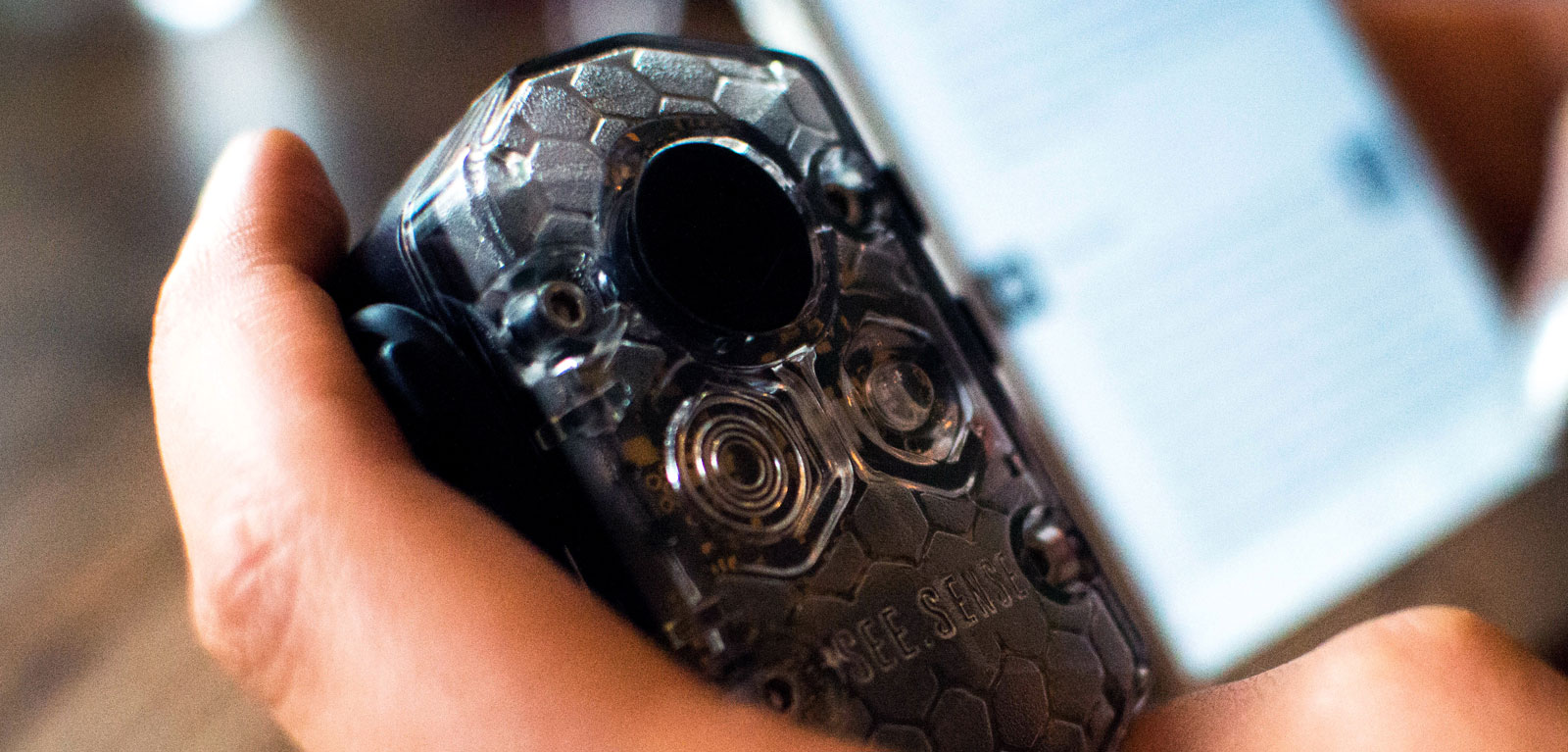Queen’s data experts team up with local company to improve road safety
Data analytics experts at Queen’s University Belfast have teamed up with local company See.Sense to create an intelligent bike light, which could help to improve road safety.

Professor Adele Marshall from Queen’s University’s School of Maths and Physics has been working with the Newtownards based company as part of a Knowledge Transfer Partnership.
See.Sense created the world’s first intelligent and connected bike light, which uses advanced sensor technology to monitor and react to its environment, helping to make the cyclist visible when they most need to be. Now, Queen’s University Belfast researchers are working with the company and are using a new type of data analytics to develop the light further.
New data analytics
Special sensors, which are built in to the bike light, collect information on the road surface in real time and analyse the cyclist’s activity. Through an app, the data is then processed using sophisticated analytics methods and mathematics.
The latest updates mean that accurate sensor data collected by the light could be used to plan better infrastructure and create smart cities. By applying advanced analytics and data visualisation, the team could use this anonymised and aggregated data to work with a city to design better infrastructure and policies.
It also means the light can detect if a cyclist has had an accident or near miss, as well as alerting local authorities if a road needs repaired.
Professor Marshall said: “This research is a really exciting development in data analytics. At Queen’s, we have been able to work with See.Sense to help make cycling safer and more enjoyable, and at the same time show how data can be used to create a smart and safer city. The work the team is doing has received a number of awards and global recognition, with the company winning the BT SME Award last year for ‘Connected Cities’, held in conjunction with the UK Cabinet Office.
“The analytics can detect when the surface of the road changes and can pick up if a cyclist has had an accident so that the app can notify their next of kin.
“The light will also identify hotspots or places that cyclists should take extra care with, when in a particular environment or location. This information could also be used by a local council to identify when a road needs to be repaired or when improvements to infrastructure should be made. This early identification will make our roads and infrastructure safer and help cities to use their resource budgets more efficiently.”
Global reputation
She added: “This partnership reaffirms our global reputation for excellence in this area. We are leading the way for data analytics at Queen’s and helping to solve global problems.
“At Queen’s, along with the strong engagement from industry, we are launching a Masters course this week in data analytics, which should help meet the demand for the next generation of data analytics experts in this ever-growing area. With virtually every industry now using data analytics, we need more skilled graduates in this area than ever before. It is an exciting time to study and work in the area.”
The bike lights are currently on sale and closed data trials are currently underway in several cities around the world. Soon, the outputs of this work will be accessible for cyclists and cities everywhere.
For more information on the MSc Data Analytics course at Queen’s University, please click here
Media
Media inquiries to Emma Gallagher at Queen’s University Communications Office T; +44 (0)28 9097 5384 E: emma.gallagher@qub.ac.uk